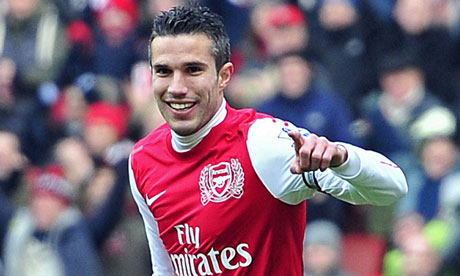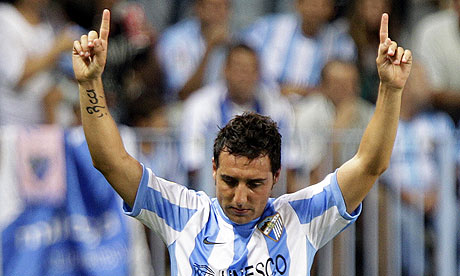Each year, one player’s future
whereabouts overshadows the impending destinations of all others. Over the years, that player has been Dimitar
Berbatov, Carlos Tevez, Cesc Fabregas and Robin
van Persie; each of whom left the club at which they made their name for pastures
and challenges new. It’s time to run our
eye over the candidates for this year’s edition of “Summer’s Biggest Transfer”.
Candidate 1: Wayne Rooney
Most interested: Paris Saint-Germain, Arsenal
Rooney has
all but stated publicly that he wants a change after nine years at Old
Trafford, and most Manchester United fans want to usher him towards the door. Since a breakout 2009-10, a player known for
work rate and invention has stagnated and as a consequence has lost his pre-eminent
position in English football. Markets such as bwinbetting.com have Rooney at short odds to remain at United, but there has been rumoured interest from big-spenders PSG and also from the gleam in Arsene Wenger's eye.
A change of scenery might
be the answer both for player and club. Although United’s recent
history is filled with “lifers”, there have also been a fair share of those who
trudged off down washout lane. The fact
is that Rooney is a surplus player at United, especially if new manager David
Moyes is allowed to thrust a fistfuls at a new striker and/or central midfielder. It may well be time to go, but
his past two years and astonishing wages may make a deal difficult.
Candidate 2: Robert Lewandowski
Most interested: Bayern Munich, Manchester United
Lewandowski might be the best
footballing centre-forward in Europe. He
has languorous pace, scores in hatfuls and can play any style of game. However, he earns approximately €20,000 per
week at Borussia Dortmund and is ready for a well-earned payday that Dortmund
can’t offer.
Enter – as per usual – Bayern Munich. The Bavarians boast a remarkable
treble-winning squad who look eminently capable of creating the next great club
dynasty, reinforced
by taking Dortmund’s most prize talent, Mario Götze. There is little doubt that Lewandowski will
move; the issue is simply where.
While Real Madrid have been
mentioned, the two most likely destinations are Bayern Munich and Manchester
United. However, with David Moyes’ transfer
habits – necessarily – tending towards deadline deals, if Lewandowski doesn’t
sign at Bayern by July, expect this one to run and run.
Candidate 3: Gareth Bale
Most interested: Real Madrid, Manchester United
Not only is Bale the single-most
damaging player in England, but the Welshman also made himself infinitely more
valuable this year by
adapting to a more central role for Tottenham Hotspur. The likelihood is that he will move – if not
this year, then next – as Spurs’ chairman Daniel Levy enthusiastically embraces
the philosophy that “every player has his price” (see: Modric, Luka; Berbatov,
Dimitar; Keane, Robbie; amongst many others).
The debate now is whether or not
Bale thinks it best to leave White Hart Lane in 2013 or perhaps to hang around
a year for another crack at Champions League qualification. Real Madrid obviously thinks that he looks
good in white, while he might form the most devastating offense in the
Premiership should he join Manchester United.
It’s thought, however, that there
is a mutual
affection between Bale and Los Merengues. However, he also seems a relatively grounded
sort and as a result may become that rare player to value loyalty over money
(at least temporarily). Levy is another management-type
for whom the deadline holds no fear, so the smart money says that Bale stays a
Spur – for now.



